Chile soldiers hunt escaped inmates in quake-hit Iquique
- Published
A woman tries to protect a child as an 8.2 magnitude quake strikes a restaurant in Arica
Chile's army has been deployed to the northern city of Iquique after some 300 inmates escaped from a women's jail following an 8.2-magnitude earthquake.
More than 100 prisoners have returned, many of them voluntarily, since fleeing the jail in the chaos that followed Tuesday evening's quake.
Chile's President Michelle Bachelet, in Iquique to assess the damage, has declared Arica and Parinacota region and Tarapaca region disaster areas.
There have been six reported deaths.
More than 2,000 homes were damaged in Alto Hospicio, a town near Iquique. Fires destroyed some businesses in the area and fishermen found their boats sunken and damaged in Iquique harbour.
Some 40,000 people in Tarapaca remain without power, said Ricardo Toro of Chile's National Emergency Office (Onemi).
Nearly a million people were evacuated across the country amid fears that the quake had triggered a tsunami, but as the threat waned many returned home.
During her visit to the region, President Bachelet praised the "calm behaviour" of residents in the worst-hit cities of Iquique and Arica.
"I think you have given us all a tremendous example," she said.
'Ghost town'
The women inmates reportedly escaped from the prison in Iquique after a wall collapsed when the quake struck at 20:46 local time (23:46 GMT).
Mr Toro said that of the 293 who had escaped, 131 had now returned voluntarily to jail.
In the hours after their escape, Interior Minister Rodrigo Penailillo said 100 anti-riot police had been flown in to help the 300 soldiers already in the city.
As well as rounding up the prisoners, they are also there to prevent "looting and disorder", the authorities said.
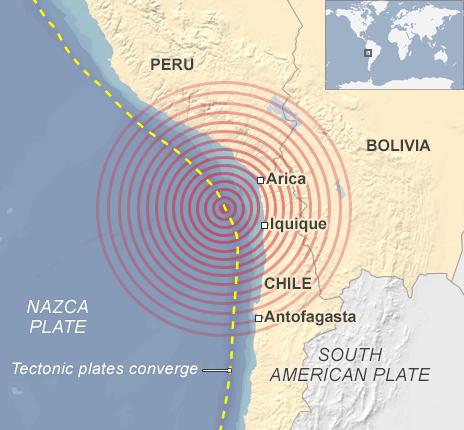
The quake struck about 86km (52 miles) north-west of Iquique, a mining area.
The tremors set off landslides that blocked roads, hit power supplies, damaged a number of homes and caused fires in some businesses.
Kurt Hertrampf, a hostel owner in Arica, told the BBC there had been a blackout after the quake and he was surprised the telephone line was still working.
"Downtown looks like a ghost town," he added.
Officials said the dead included people who were crushed by collapsing walls or who had died of heart attacks. Several people were seriously injured.
The tsunami alert sent communities fleeing coastal areas of Chile. Television pictures showed traffic jams as people tried to head for safer areas.
Dozens of aftershocks - including a 6.2-magnitude tremor - continued through the night.
But although waves of up to 2.1m (about 6ft) hit some areas, most tsunami warnings had been lifted by daylight.
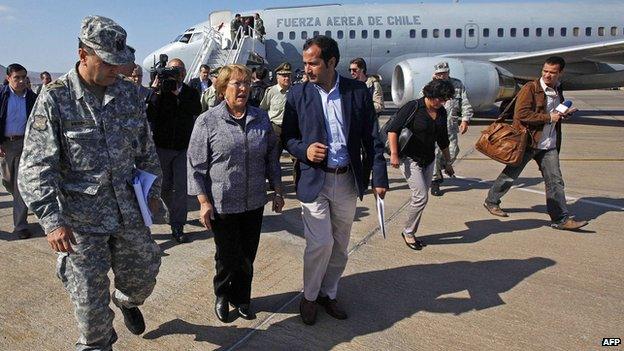
Chile's President Michelle Bachelet arrives in the northern city of Iquique to see for herself the damage caused by Tuesday's earthquake
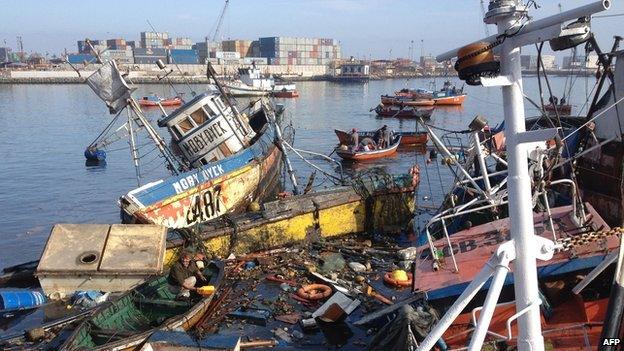
Despite the strength of the quake, the region appears to have escaped significant damage
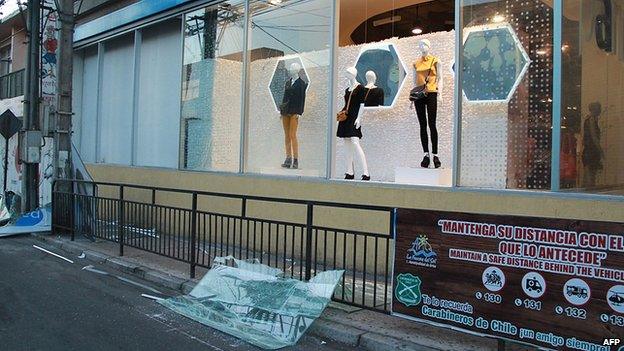
Some businesses and homes were damaged, roads were blocked by landslides and thousands of homes lost power
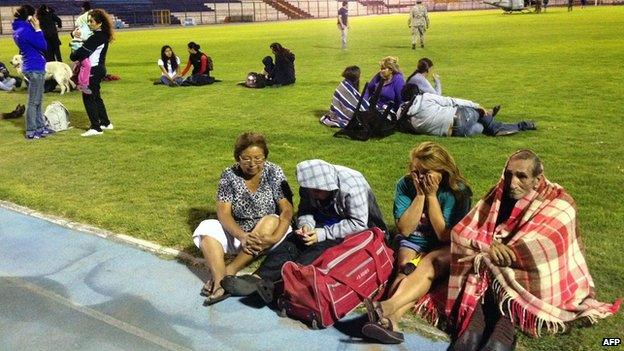
Fears of a tsunami prompted many people to seek refuge away from coastal areas, as tremors continued throughout Tuesday night
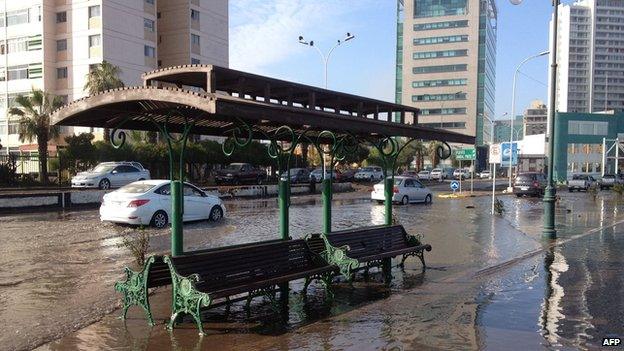
Two-metre-high waves hit Chile's coastline, but most tsunami alerts have now been lifted
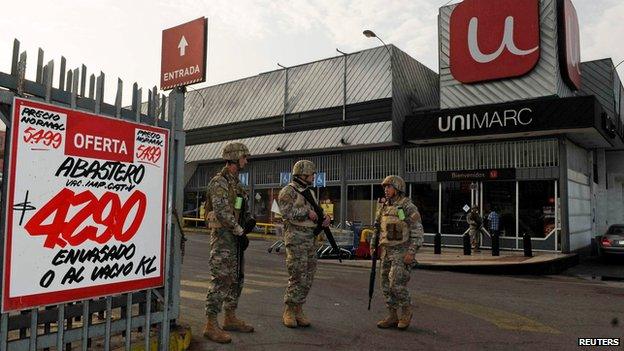
Supermarkets and petrol stations are among businesses now being guarded by soldiers in Iquique to prevent looting
The quake was felt beyond Chile.
Buildings shook in Peru and in Bolivia's high altitude capital of La Paz - more than 470km (290 miles) from Iquique.
Tsunami warnings were also issued for Peru, Ecuador, Colombia and Panama, and tsunami watches - in which the danger of large waves is deemed to be less serious - were put in place for Costa Rica, Nicaragua, El Salvador, Guatemala, Mexico and Honduras.
President Michelle Bachelet urged people to "do all they need to ensure they and their families stay safe"
Residents as far away as Japan and Hawaii were also warned to stay away from coastal areas. Most alerts have now been lifted.
The area close to the epicentre of the quake is mineral rich, but none of the major copper companies reported any break in production.
Chile is one of the most seismically active countries in the world.
Central and southern areas of the country were hit by a powerful earthquake of magnitude 8.8 followed by a tsunami that devastated scores of towns in February 2010. More than 700 people were killed.
In 1960 an area of Chile south of Concepcion was hit by a 9.5 magnitude which caused about 1,655 deaths and a tsunami in Hawaii and Japan.
Are you affected by the earthquake? Are you in the region where a tsunami warning has been put in place? Please email haveyoursay@bbc.co.uk with 'Chile' in the subject.